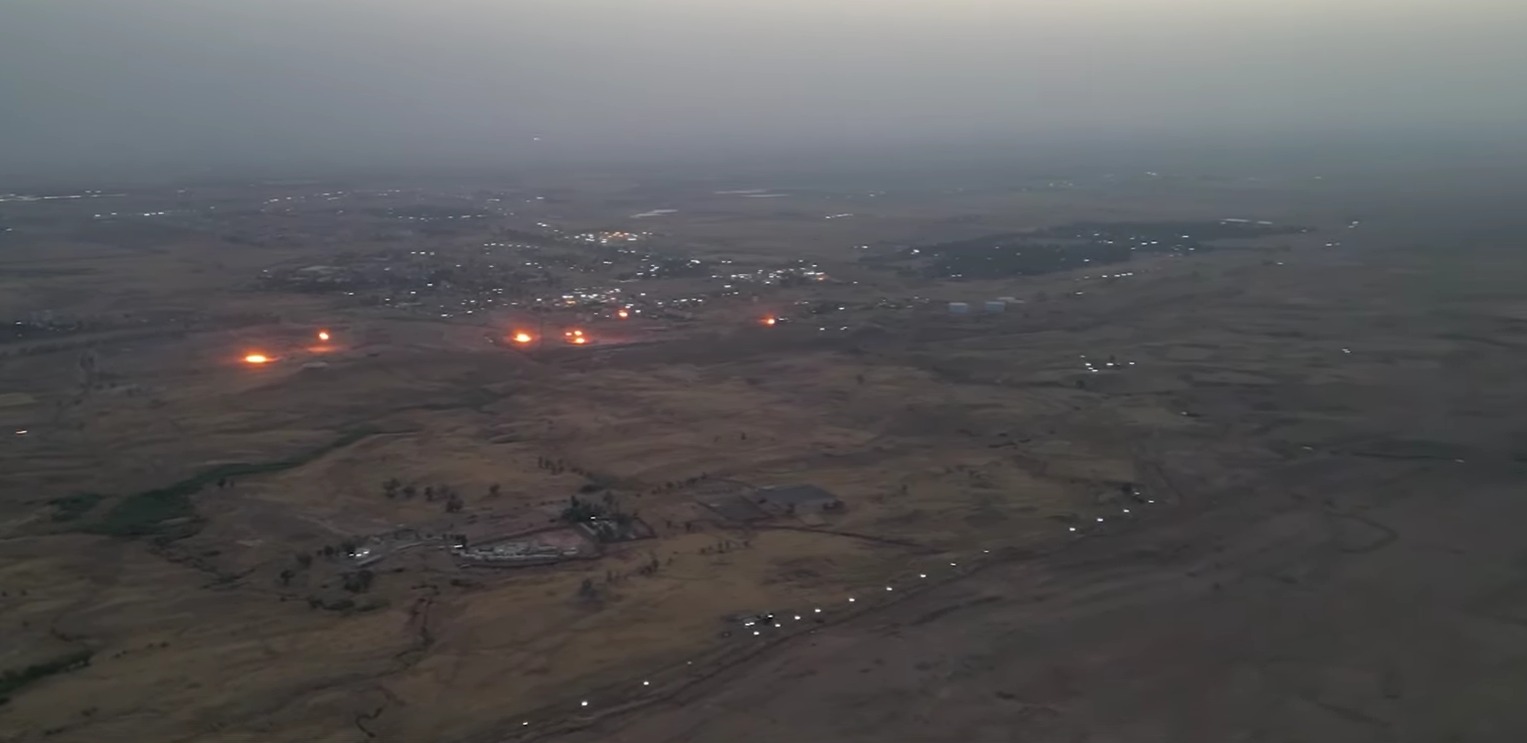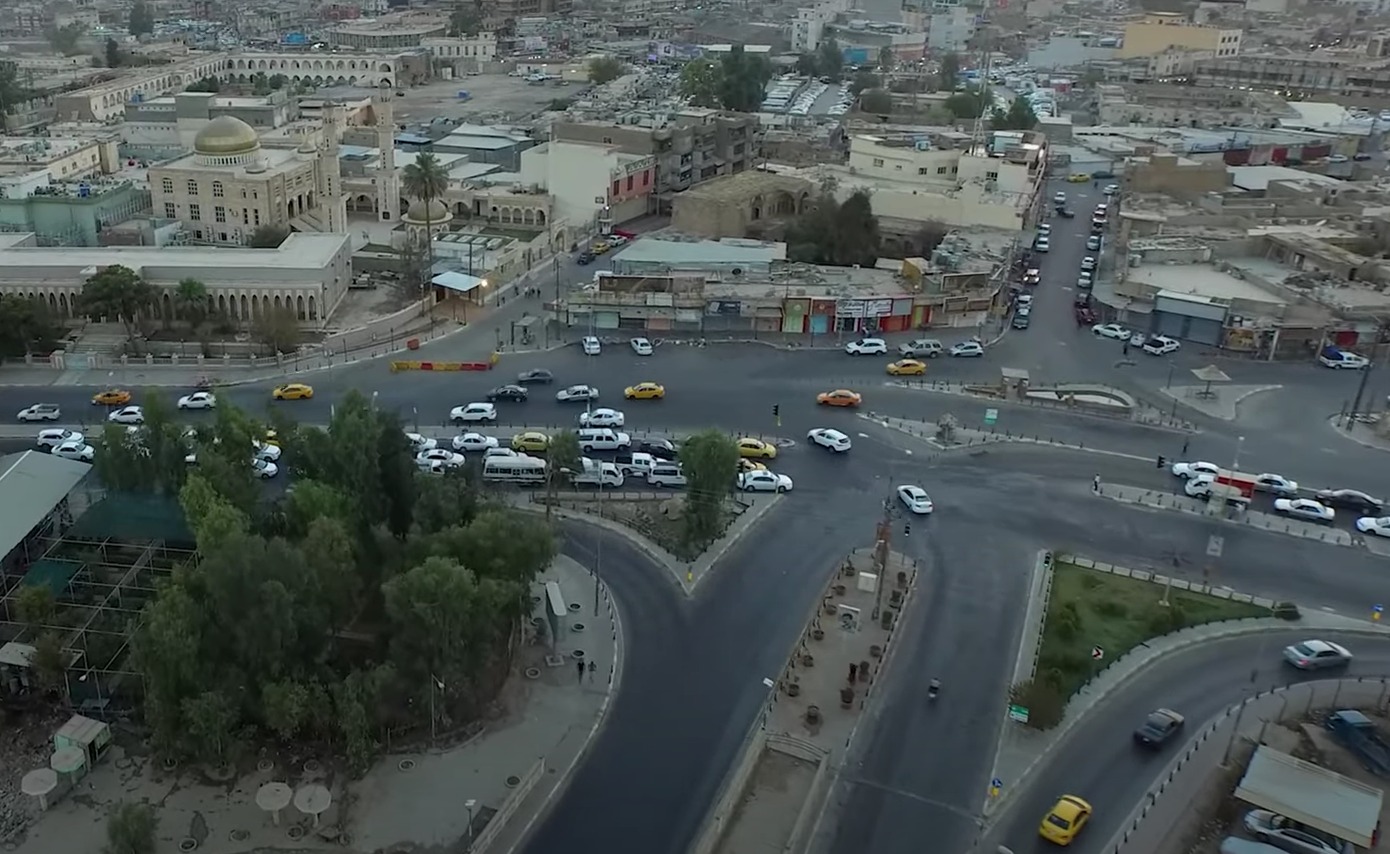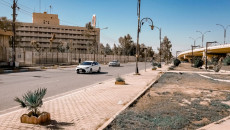The local administration of the northern, multi-ethnic, oil-rich province of Kirkuk is seeking to take urgent steps to increase the greenery in the province, which according to statistics does not exceed 3%.
These efforts are due to the dangers resulting from climate change, as experts in Kirkuk indicate that there are fears of a significant increase in the incidence of lung and respiratory tract cancer over the next two decades.
Consulting physician and environmental researcher, Mohammed Al-Jibouri, told (KirkukNow), "10% of each residential complex should be allocated to green spaces, in this context we need to plant millions of trees in Kirkuk," adding, "In addition to caring for the forests and greenery in the province, we must work to serve the environment and confront the repercussions of climate change."
According to the global standard, the greenery in cities should not be less than 30%, but the percentage in Kirkuk province, according to the head of the Green Kurdistan Organization, Shikofa Mohammed, "does not exceed 3 percent."
Mohammed, an activist working since 2014 to increase green spaces, said, "We do not intend to give up our efforts to increase the percentage of greenery until we reach the international standard, and this is not achieved by planting one or two trees, but millions."
"According to the international standard, the percentage of greenery should be 25 square meters for every 100 square meters. In fact, we are still very far from reaching this percentage, and this means that the alarm bell has been sounded in Kirkuk, because the people of the province live amidst the emissions of many oil fields,” she desperately said.
“In order to reach the required percentage, we need to plant a million trees annually."
After assuming his duties as governor of Kirkuk, Rebwar Taha stressed in one of his decisions that "from now on, projects will not be granted to any company unless it commits to planting a thousand trees."
As part of efforts to preserve Kirkuk's environment, a large-scale cleaning campaign was launched in the city on February 1.
There are about 200 public parks in the city of Kirkuk, a few of which are more than several donums in area, while the rest are smaller. In addition to 81 medians - one to five kilometers long – where trees are planted.
Kirkuk Province consists of four districts, its area is 9,600 square kilometers, and its population is estimated at more than 1.7 million people. Kirkuk is a disputed area between the Iraqi federal government and the Kurdistan Regional Government KRG, and its fate will be within the framework of Article 140 of the Constitution.

A cloud of dust over Sekanian neighborhood, adjacent to Babagurgur oil field, on the Kirkuk-Erbil highway
Al-Jibouri believes that the increase in population and factories have affected air quality.
"The only solution is to increase green spaces, because trees act as a buffer against dust storms and air pollution."
Almost 90% of the population breathes polluted and unhealthy air, including the population of Iraq, which is among the "most polluted" in the world, according to IQ Air, a Swiss company specialized in air quality technology.
According to a study prepared by the IQAIR in 2022, Iraq ranked second in the list of countries with the highest air pollution. This study also shows that air pollution rates in Iraq has doubled in one year.
In 2021, the percentage of pollution was 49.7%, and in 2020, Iraq was ranked tenth by 39.6%, which draws attention to a previous statement by the Minister of Environment, Jassim Al-Falahi, “that pollution related to oil production is a major reason behind the high rates of cancer.”
The World Health Organization (WHO) warns that indoor and outdoor air pollution is one of the most dangerous threats to life and climate, as it leads to the premature death of seven million people worldwide annually.
The director of the Kirkuk Cancer Center, Niaz Ahmed, says that the presence of oil and gas fields in Kirkuk "affects the health of the population because their emissions pollute the air they breathe, which will lead over the next two decades to an increase in the incidence of several types of cancer, especially lung and respiratory cancer."
Kirkuk recorded about 2,000 cases of cancer out of a total of 35,000 cases throughout Iraq in 2023, 57% of whom were female and 20% of whom had breast cancer, according to the Green Kurdistan Association.
Mohammed, who has been striving for more than a decade to increase green spaces and combat the effects of climate change, launched a tree-planting project in the Sekanyan neighborhood on the Kirkuk-Erbil road three years ago.
“The oil fields are close to the Sekanyan area, so it is greatly affected by heavy smoke and other air pollutants. The seedlings we planted are now growing,” she added.
“We constantly monitor the seedlings and trees to make sure they are suitable for the environment in which they were planted, and the residents are cooperative with us.”
There are five main oil production fields in Kirkuk, supervised by the North Oil Company of the Iraqi government, which produce approximately 350,000 barrels per day, most of which are pumped to refineries in Iraq, according to Farhad Hamza, chief engineer of the North Oil Company, to KirkukNow.
These fields include 730 oil wells, and approximately 60 of them are located near the Sekanyan neighborhood, where 20-25 wells operate on a daily basis. During gas isolation operations, a high percentage of it is released into the air, which increases the level of pollution in the area.
Iraq annually burns 17 billion cubic meters of associated natural gas when drilling oil.
Gas emissions from factories, cars, and oil wells pose a threat to human health, as they cause an increase in the percentage of polluted air in these areas, especially if the area suffers from a decrease in afforestation operations and green spaces. All of these factors together have a direct impact on human health and respiratory system and increase the incidence of blood diseases and cancers.
However, Ayoub Saber, an agricultural engineer at Kirkuk Gardens, said, “Our biggest problem is the lack of workers to take care of the greenery, and the Kirkuk administration has promised to address this problem.”






